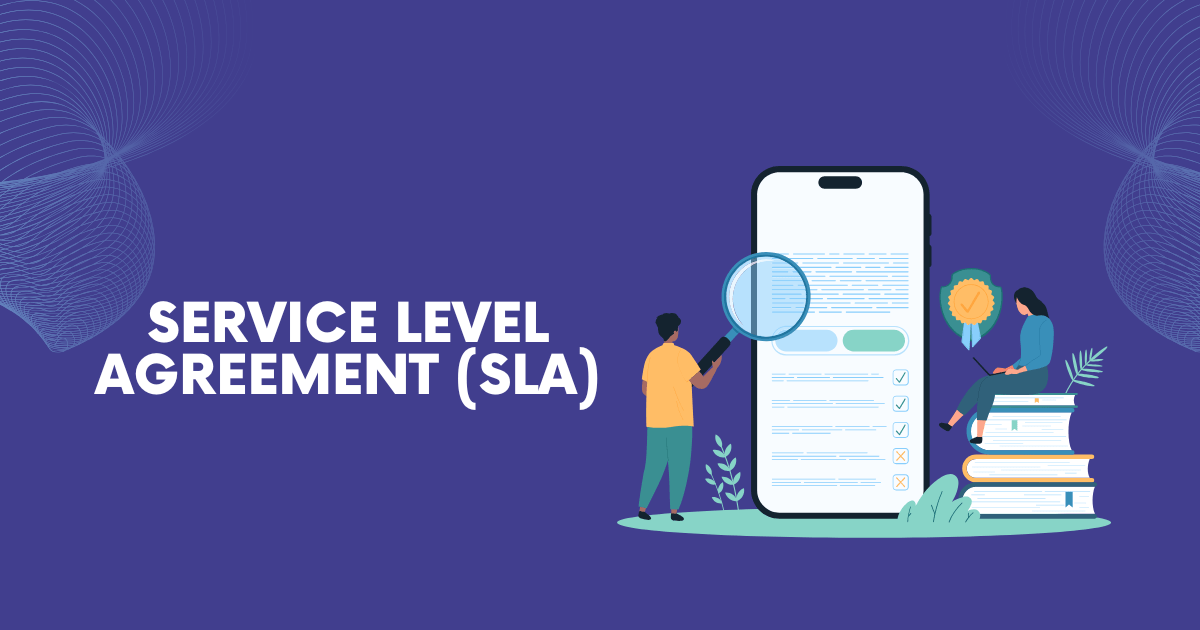Why SLAs Matter: Protecting and Enhancing Your Business
A Service-Level Agreement (SLA) is an important contract between a service provider and a customer. It clearly defines the level of service the customer can expect from the provider. SLAs outline things like response times, service quality, and availability. Moreover, they explain what will happen if these standards aren’t met. Service Level Agreement are a key part of any contract with technology vendors because they ensure everyone is on the same page and hold both parties accountable.
Businesses benefit from service level agreements because they protect them from poor service. If the provider doesn’t meet the agreed standards, the SLA clearly explains what actions will be taken to fix the issue. This blog’ll cover why SLAs matter, who provides them, and tips on creating effective SLAs that can benefit your business.
Why Do You Need an SLA?
An SLA is important because it clarifies and protects the service provider and the customer. Without Service Level Agreement, there could be misunderstandings about what’s included in the service, how quickly issues should be fixed, and what happens if the service fails. Here are some reasons why Service Level Agreement is essential:
- Clarity of Expectations: The SLA sets clear expectations for the quality of service. Both the customer and the provider know exactly what is required.
- Customer Protection: If a service provider fails to meet agreed-upon service levels, the SLA usually includes remedies, like discounts or termination rights.
- Avoiding Misunderstandings: By having everything in writing, there’s less chance of disputes between the customer and the service provider.
- Performance Measurement: SLAs help track performance by setting clear metrics, making it easier for customers to assess whether they’re getting the service they’re paying for.
Who Provides the SLA?
Service providers often offer customized Service Level Agreements designed to fit businesses’ specific needs. These tailored SLAs allow companies to choose the level of support that best suits their IT infrastructure, ensuring the right balance of service and cost efficiency. Many providers have in-house capabilities to support End-of-Life (EOL) and End-of-Service-Life (EOSL) servers, storage systems, networking devices, and tape libraries. By using these services, businesses can significantly reduce maintenance costs, sometimes by as much as 30% to 70%.
What are the Benefits of Service Level Agreement?
Service Level Agreement provides a lot of advantages for both the service provider and the customer. Here are some of the key benefits:
Trustworthiness:
By having a written contract, an SLA builds trust between the service provider and the customer. Both sides have clear commitments, and the service provider is accountable for delivering the service.
Clarity of Expectations:
SLAs make everything clear from the start. This way, the customer knows exactly what to expect regarding service quality, response times, and resolution times. Likewise, the service provider understands their role, making the whole process run more smoothly.
Everything on Paper:
When everything is in writing, there is less chance of confusion or disagreement. If a problem arises, both parties can refer to the SLA to see what was agreed upon.
Improved Customer Experience:
Customers have peace of mind knowing that their systems will be taken care of and that they have a contract that holds the provider accountable for any issues.
Legal Protection:
SLAs also act as legal protection for the customer. If the service provider fails to meet the terms of the agreement, the customer has a right to seek compensation or take other legal actions based on the SLA.
How to Create an Effective Service Level Agreement?
Creating an effective SLA requires careful planning. Here are some steps your organization can follow to craft an SLA that works:
Identify Your Business Needs:
Before drafting a service-level agreement, it’s essential to identify what your business needs from the service provider. Additionally, you should consider any specific requirements that may be important for your operations. Do you need 24/7 support? Is system uptime your biggest concern? Or do you need quick response times for urgent issues? Understanding your priorities will help you negotiate an service level agreement that meets your expectations.
Consider Flexible SLAs:
A flexible SLA allows businesses to adjust the level of support they need based on their current situation. For example, critical systems may need high levels of support; however, less essential systems may only require basic maintenance. By choosing flexible service level agreements, businesses can reduce costs by only paying for the services they actually need.
Think About a Customized SLA:
Sometimes, a standard service-level agreement provided by the vendor may not meet all your needs. In that case, businesses should consider asking for a customized SLA. This type of agreement allows companies to tailor the level of support to specific systems, making it more practical and cost-effective. A customized agreement ensures that your business gets the right support for the right systems, without overpaying for unnecessary coverage.
Conclusion: The Importance of SLAs
Service Level Agreements are an essential part of any contract with a technology vendor or service provider. They define the expected level of service and also protect the customer by setting solutions in place when issues arise. Plus, with flexible or customized service level agreements, businesses can adjust their agreements to fit specific needs, helping them avoid extra costs and improve the overall efficiency of their IT management.
With a service-level agreement in place, businesses can ensure their provider delivers on their promises. Additionally, they have a plan for when issues arise. In the long run, such agreements help businesses save money, improve system uptime, and protect against poor service.
Agrius IT offers comprehensive Service Level Agreement services, providing tailored support to meet your business’s specific IT needs. Moreover, by partnering with Agrius IT, you can ensure high-quality service, reduce costs, and extend the life of your IT infrastructure through customized and flexible service level agreement solutions.



